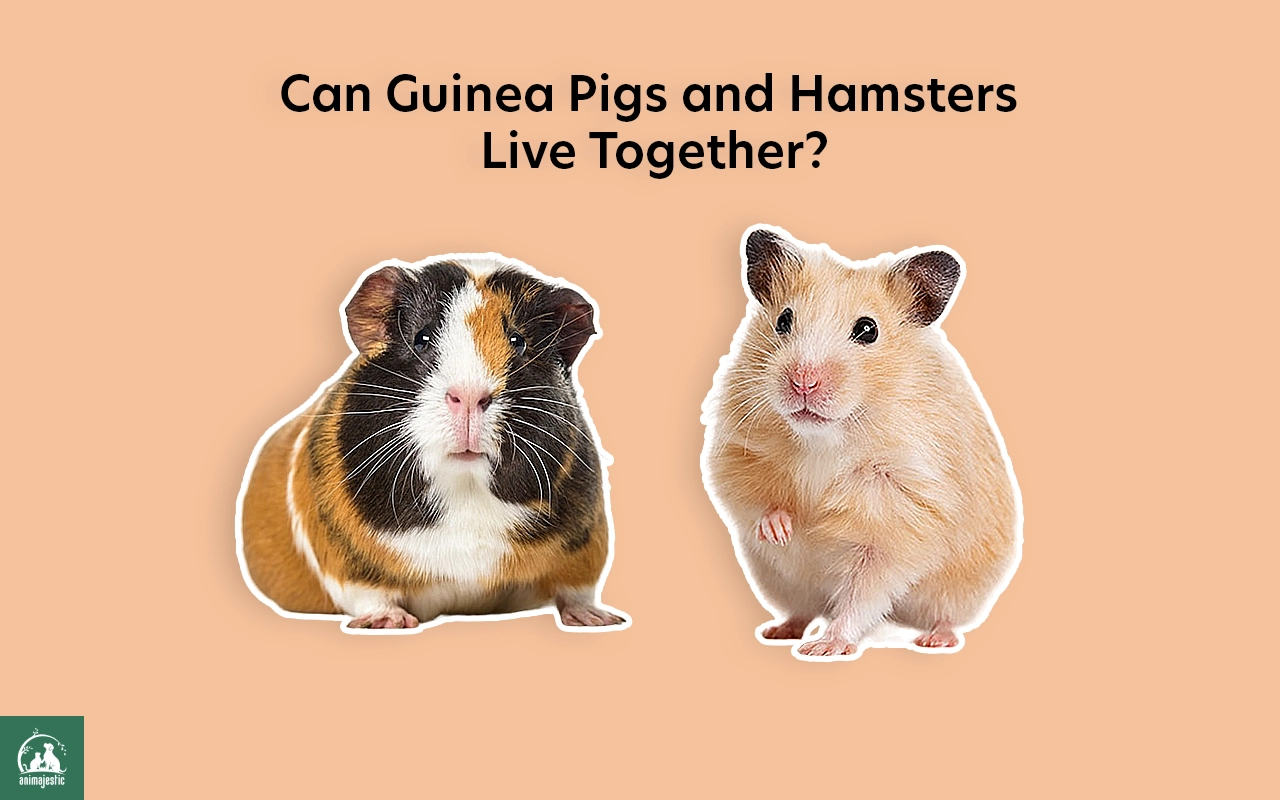Most people usually ask if it is a good idea to house guinea pigs and hamsters together. While it may seem like a good idea to house these small animals together, the truth is that it is not recommended. There are several reasons why guinea pigs and hamsters should not be kept in the same enclosure and we will explore all of them in this article.
The Difference Between Guinea Pigs and Hamsters
Before we go any further, we need understand the inherent differences between guinea pigs and hamsters. Guinea pigs are social animals, often thriving in the company of their own kind. They are larger, typically weighing between 1.5 to 2.5 pounds, and require more space and specialized care. On the other hand, hamsters are solitary creatures and are best kept alone. They are smaller, ranging from 4 to 7 inches in length, and have specific habitat requirements.
Size and Space Considerations
One of the primary factors to consider when considering cohabitation of these two pets is the vast difference in size between guinea pigs and hamsters. Guinea pigs require significantly more space than hamsters due to their larger size and need for exercise. Guinea pig cages or enclosures should provide at least 7.5 square feet of space per pig to ensure their well-being. Hamsters, on the other hand, have their own specific space requirements, typically ranging from 360 to 600 square inches. It is recommended to provide each pet with a habitat suitable for their individual needs.
Social Dynamics and Compatibility
Guinea pigs are highly social animals and thrive in the company of their own species. They engage in social grooming, vocalizations, and establish complex hierarchies within their groups. Hamsters, on the contrary, are solitary by nature and are known to display territorial behaviors, often leading to aggression when sharing a space with other hamsters, let alone other animals in this scenario.
Given these fundamental differences in social dynamics, attempting to house guinea pigs and hamsters together can lead to stress, anxiety, and even physical harm. Guinea pigs may inadvertently intimidate or injure hamsters due to their larger size and natural herding behaviors. The stress of living together will most likely cause negative impact to both animals’ health and well-being, leading to increased aggression in the behavior, reduced appetite, and other unwanted side effects.
Hygiene and Health Concerns
Another critical aspect to consider when contemplating housing different species together is the risk of cross-species infections and hygiene management. Guinea pigs and hamsters have different grooming habits, dietary requirements, and susceptibility to certain diseases. Mixing their living spaces can increase the chances of transmitting pathogens or parasites between the two species, compromising their health.
Dietary Restrictions & Concerns
Guinea pigs have specific dietary needs that differ from hamsters. A guinea pig’s diet should consist of fresh hay, fresh vegetables, and a small amount of specially formulated pellets. Hamsters, on the other hand, require a diet primarily composed of high-quality hamster food mixes rich in protein, vegetables and nuts as occasional snacks. Attempting to provide a balanced diet that meets the specific nutritional requirements of both species can be challenging and potentially lead to health issues if not carefully managed.
Verdict
Given the negative outcomes that will arise from housing these two animals together, it is our strong opinion that you SHOULD NOT them together. While guinea pigs thrive in social groups, hamsters are solitary creatures by nature. Their differing social dynamics, size requirements, and specific care needs make cohabitation both stressful and potentially dangerous for both pets.
As a responsible pet owner, you should always prioritize the welfare and individual needs of each pet. Provide separate cages and environments for each to ensure their happiness, health, and well-being.
